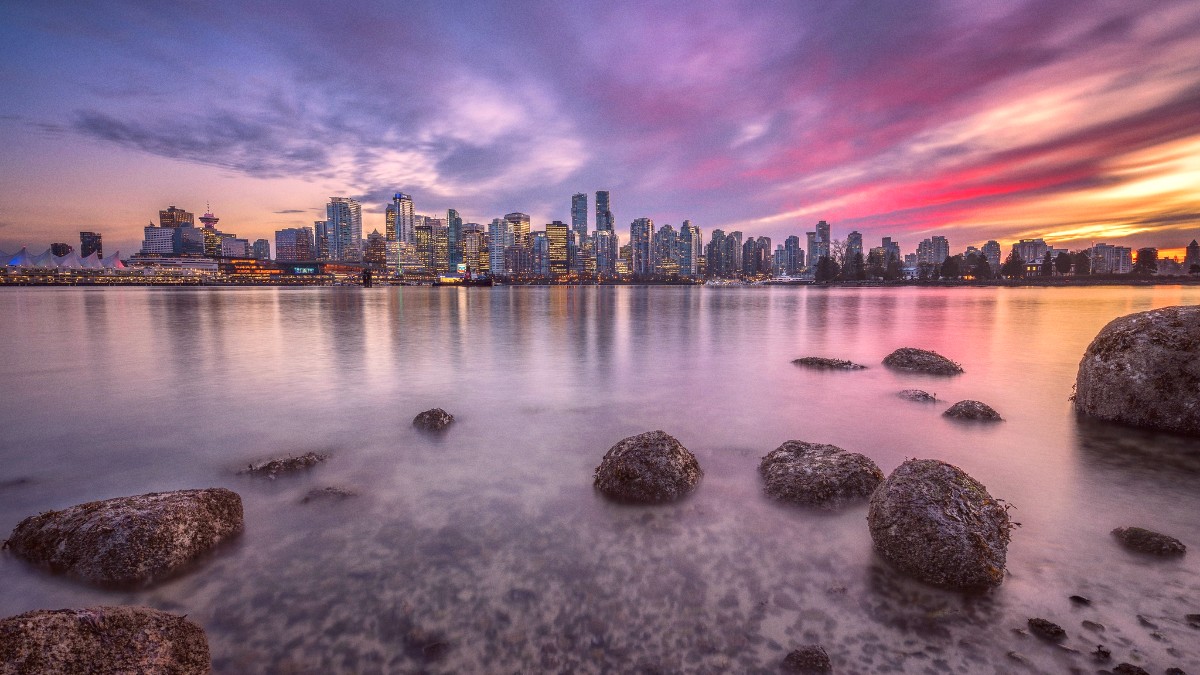
British Columbia, Canada
Protecting the environment is a shared effort. Your choices preserve Vancouver's green spaces.
Mindful interactions contribute to cultural preservation. Respect local traditions and history.
Your travel choices directly benefit local communities. Support businesses that strengthen the area.
Actions that maintain Vancouver's natural beauty.
Stanley Park Ecology Society (SPES) leads conservation, public education, and stewardship programs. Their efforts focus on habitat restoration, wildlife monitoring, and invasive species removal.
Recycling bins for containers and paper are common in public spaces, including Stanley Park. Compost bins appear less frequently. Adopt reduce, reuse, recycle principles. Carry a reusable shopping bag, as plastic bag bans are in effect, and a reusable water bottle. This lessens waste.
Consider purchasing carbon offsets for flights. Public transit and active transportation (walking, cycling) lessen emissions during your stay. Look for hotels with Green Eco-Rating or similar environmental certifications. Some tour operators prioritize sustainable practices. Choosing these options supports environmental protection.
Seek out fair trade products and ethically sourced goods for souvenirs or other items. This supports fair labor and sustainable production. Consider outdoor gear from companies with strong sustainability commitments.
Support local businesses, especially small, independent shops and restaurants. This makes certain tourism benefits the people who live and work in Vancouver.
Ensure that tours or activities involving wildlife are ethical and prioritize animal welfare. Avoid practices that harm animals or local communities.
Your small daily choices collective lessen environmental impact. Embrace sustainable practices throughout your Vancouver journey. Consider supporting The Rainforest Site.
Mindful interactions contribute to cultural preservation.
Stanley Park itself holds deep cultural significance as part of the traditional, unceded territories of the Musqueam, Squamish, and Tsleil-Waututh Nations. Artifacts like the Totem Poles reflect rich First Nations heritage.
Do not touch or climb on totem poles; these are important cultural artifacts. Learn about the traditional territories: Stanley Park sits on the unceded traditional territories of the Musqueam, Squamish, and Tsleil-Waututh Nations. Acknowledging this history shows respect.
Always ask for permission before taking photos of people, especially those in traditional attire or ceremonies. Respect their privacy and cultural practices. Avoid intrusive photography in private settings or during sensitive events.
While not directly relevant to Stanley Park, general etiquette for religious sites elsewhere includes dressing modestly and removing shoes if required. Always observe posted signs and local customs at places of worship or sacred sites.
Your travel choices directly benefit local communities. Supporting businesses that operate sustainably further strengthens the community.
Support local businesses, especially small, independent shops and restaurants. This makes certain tourism benefits the people who live and work in Vancouver.
Seek out fair trade products and ethically sourced goods when shopping for souvenirs or other items. This supports fair labor practices and sustainable production.
Confirm tours or activities involving wildlife are ethical and prioritize animal welfare. Avoid practices that exploit animals or local communities.